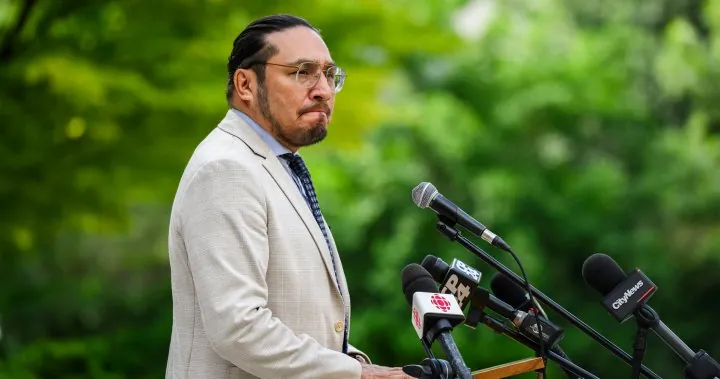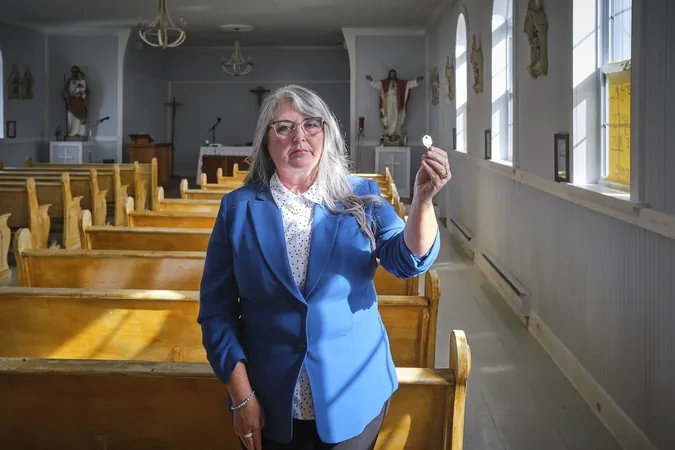
Ontario MPP Advocates for Truth and Reconciliation Day as Provincial Holiday: A Call for Action
2024-09-30
Introduction
In a significant move towards reconciliation, Ontario’s sole First Nation representative at Queen’s Park is set to introduce legislation aimed at declaring the National Day for Truth and Reconciliation a paid provincial holiday. New Democrat deputy leader Sol Mamakwa, who represents the northwestern riding of Kiiwetinoong, believes that Ontario should align with the federal government's recognition of this vital day.
Current Status and Importance
While the day is observed as a federal statutory holiday, it lacks similar status in Ontario. Mamakwa emphasizes that acknowledging the struggles faced by Indigenous communities through the establishment of this holiday is essential. “It’s always First Nations who take the day off to reflect, yet it's crucial for all Ontarians to have the opportunity to learn about the history of residential schools and to reflect on it,” he stated.
Historical Context
The National Day for Truth and Reconciliation serves to honor the memory of the thousands of Indigenous children who suffered abuse in state- and church-run residential schools across Canada. This initiative evolved from Orange Shirt Day, which began in 2013 to commemorate the experiences of Phyllis Webstad, who had her cherished orange shirt taken from her upon entering a residential school at the age of six.
Legislative Plans and Personal Experience
Mamakwa, who has firsthand experience in a residential school, plans to introduce a private member’s bill this November. “This isn’t just a day of reflection; it should be a day for all Ontarians to engage with the truth about our history and the ongoing impacts of colonialism,” he added.
Response from Provincial Officials
Despite support from various advocates, Ontario's Minister of Indigenous Affairs, Greg Rickford, expressed reservations about the proposal. He indicated that some First Nations leaders believe that focusing on education rather than a statutory holiday may be more beneficial. “Further consultation with First Nations communities and survivors is crucial,” Rickford remarked.
Impact of Residential Schools
Statistics surrounding residential schools are staggering, with approximately 150,000 First Nations, Inuit, and Métis children forced to attend these institutions, and an estimated 6,000 Indigenous children losing their lives there. The National Centre for Truth and Reconciliation has identified over 4,000 deceased children, but many believe the true figures to be far greater.
Educational Initiatives
In educational settings across Ontario, schools participate in activities such as wearing orange shirts and learning about the history of residential schools to instill awareness in students. Mamakwa's legislation aims to elevate this education to a statewide observance where all Ontarians can engage in efforts towards healing and understanding.
Cultural Representation in Legislation
In a historic moment, Mamakwa plans to present his bill in Anishininiimowin, or Oji-Cree, marking only the second time a language other than English or French will be spoken in the Ontario legislature. This represents a stride towards inclusion, following rule changes that enable the use of Indigenous languages within legislative proceedings.
Conclusion and Vision for Reconciliation
Mamakwa asserts that declaring a statutory holiday would not only honor those affected by the residential school system but further solidify Ontario’s commitment to reconciliation. 'This is the path we need to take,' he stated, 'and walking this path shows a genuine commitment to recognizing and uplifting Indigenous voices and histories.' As the conversation surrounding reconciliation continues to evolve, Mamakwa's proposal might just be a significant step towards healing for all Ontarians.









 Brasil (PT)
Brasil (PT)
 Canada (EN)
Canada (EN)
 Chile (ES)
Chile (ES)
 España (ES)
España (ES)
 France (FR)
France (FR)
 Hong Kong (EN)
Hong Kong (EN)
 Italia (IT)
Italia (IT)
 日本 (JA)
日本 (JA)
 Magyarország (HU)
Magyarország (HU)
 Norge (NO)
Norge (NO)
 Polska (PL)
Polska (PL)
 Schweiz (DE)
Schweiz (DE)
 Singapore (EN)
Singapore (EN)
 Sverige (SV)
Sverige (SV)
 Suomi (FI)
Suomi (FI)
 Türkiye (TR)
Türkiye (TR)